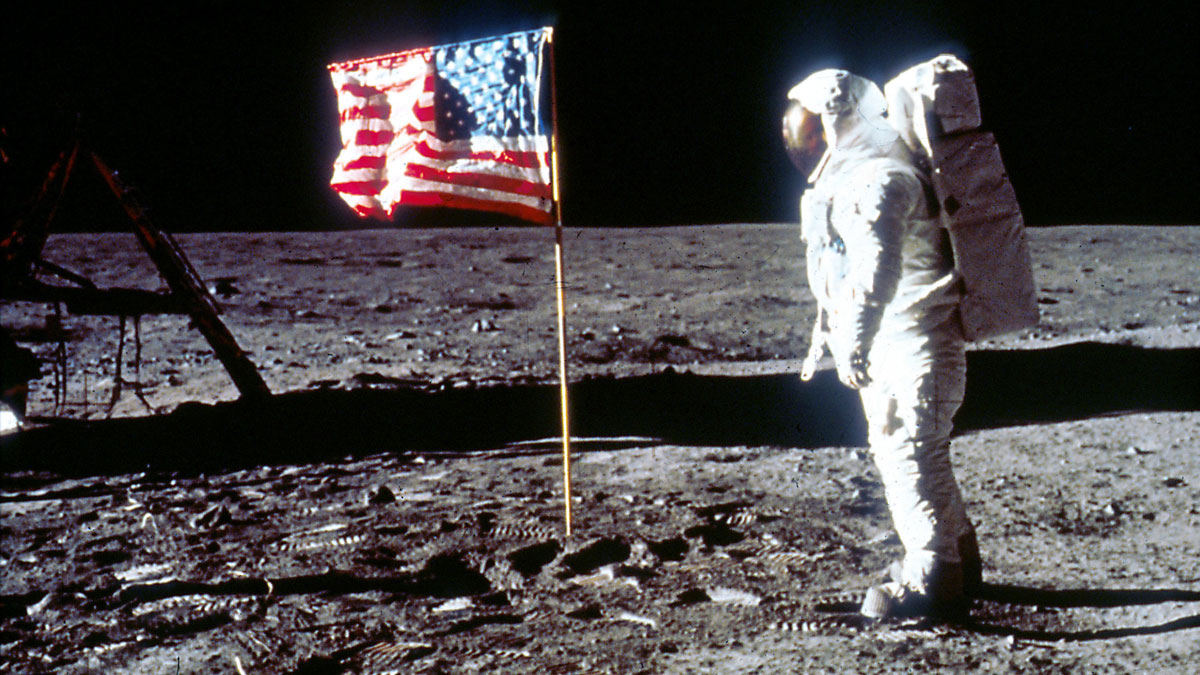The maths equation threatening to disprove conspiracy theories
Moon landing hoax would have been exposed in three years, according to scientist's formula

A free daily email with the biggest news stories of the day – and the best features from TheWeek.com
You are now subscribed
Your newsletter sign-up was successful
Major conspiracy theories would have been exposed within years if they were really true, a scientist has concluded.
Dr David Grimes, a physicist at Oxford University, has developed a mathematical equation he says reveals how long a conspiracy can survive without being found out.
He applied his formula to four famous "cover-ups" to show the truth behind the rumours.
The Week
Escape your echo chamber. Get the facts behind the news, plus analysis from multiple perspectives.

Sign up for The Week's Free Newsletters
From our morning news briefing to a weekly Good News Newsletter, get the best of The Week delivered directly to your inbox.
From our morning news briefing to a weekly Good News Newsletter, get the best of The Week delivered directly to your inbox.
"I hope that by showing how eye-wateringly unlikely some alleged conspiracies are, some people will reconsider their anti-science beliefs," he said. "While believing the Moon landings were faked may not be harmful, believing misinformation about vaccines can be fatal."
How does the formula work?
His equation expresses the probability of a conspiracy being revealed, either deliberately or unintentionally. By analysing data from genuine collusions, including the National Security Agency's Prism surveillance programme revealed by Edward Snowden in 2013, Dr Grimes was able to factor in variables such as the number of conspirators and length of time it took for the secret to be revealed.
"It represents a 'best case scenario' for conspirators," says the BBC's Alex Berezow. "It assumes that they are good at keeping secrets and that there are no external investigations at play."
A free daily email with the biggest news stories of the day – and the best features from TheWeek.com
What does the equation suggest about the Moon landings?
The belief that the Moon landings were a hoax has become one of the most persistent conspiracy theories of all time. Sceptics claim that the 1969 landings – and all those which followed – were faked by Nasa and that no human being has ever set foot on the surface.
Using his equation, Grimes was able to calculate that a hoax would have been revealed after three years and eight months, as it would have begun in 1965 and involved about 411,000 Nasa employees.
What about other famous conspiracy theories?
Grimes applied the same formula to three other well-known conspiracy theories. According to his calculations, the climate change "myth" would be revealed in three years and nine months, the vaccine-autism "conspiracy" in three years and two months and the "plot" to withhold a cancer cure in three years and three months.
"In simple terms, any one of the four conspiracies would have been exposed long before now," he concluded.
-
 The environmental cost of GLP-1s
The environmental cost of GLP-1sThe explainer Producing the drugs is a dirty process
-
 Greenland’s capital becomes ground zero for the country’s diplomatic straits
Greenland’s capital becomes ground zero for the country’s diplomatic straitsIN THE SPOTLIGHT A flurry of new consular activity in Nuuk shows how important Greenland has become to Europeans’ anxiety about American imperialism
-
 ‘This is something that happens all too often’
‘This is something that happens all too often’Instant Opinion Opinion, comment and editorials of the day
-
 Epstein files topple law CEO, roil UK government
Epstein files topple law CEO, roil UK governmentSpeed Read Peter Mandelson, Britain’s former ambassador to the US, is caught up in the scandal
-
 Iran and US prepare to meet after skirmishes
Iran and US prepare to meet after skirmishesSpeed Read The incident comes amid heightened tensions in the Middle East
-
 Israel retrieves final hostage’s body from Gaza
Israel retrieves final hostage’s body from GazaSpeed Read The 24-year-old police officer was killed during the initial Hamas attack
-
 China’s Xi targets top general in growing purge
China’s Xi targets top general in growing purgeSpeed Read Zhang Youxia is being investigated over ‘grave violations’ of the law
-
 Panama and Canada are negotiating over a crucial copper mine
Panama and Canada are negotiating over a crucial copper mineIn the Spotlight Panama is set to make a final decision on the mine this summer
-
 Why Greenland’s natural resources are nearly impossible to mine
Why Greenland’s natural resources are nearly impossible to mineThe Explainer The country’s natural landscape makes the task extremely difficult
-
 Iran cuts internet as protests escalate
Iran cuts internet as protests escalateSpeed Reada Government buildings across the country have been set on fire
-
 US nabs ‘shadow’ tanker claimed by Russia
US nabs ‘shadow’ tanker claimed by RussiaSpeed Read The ship was one of two vessels seized by the US military